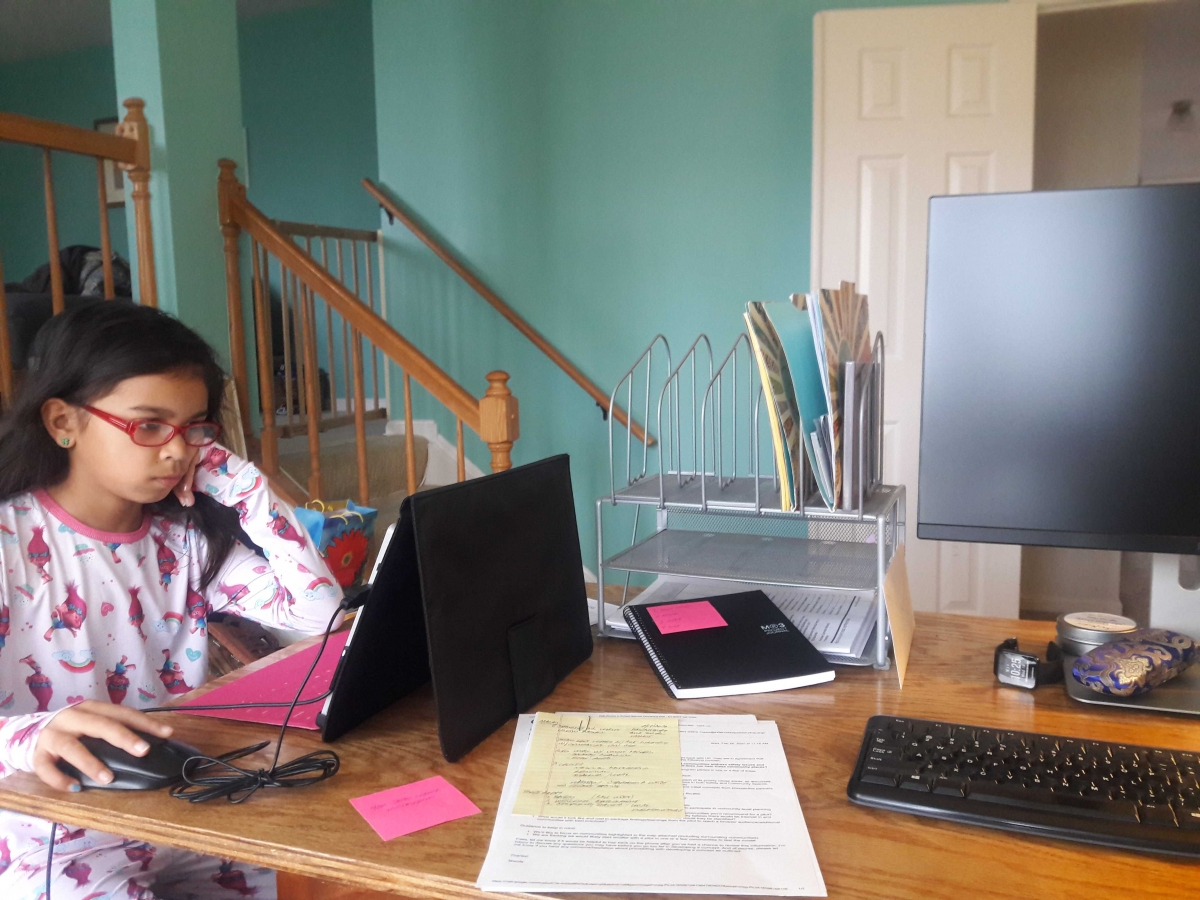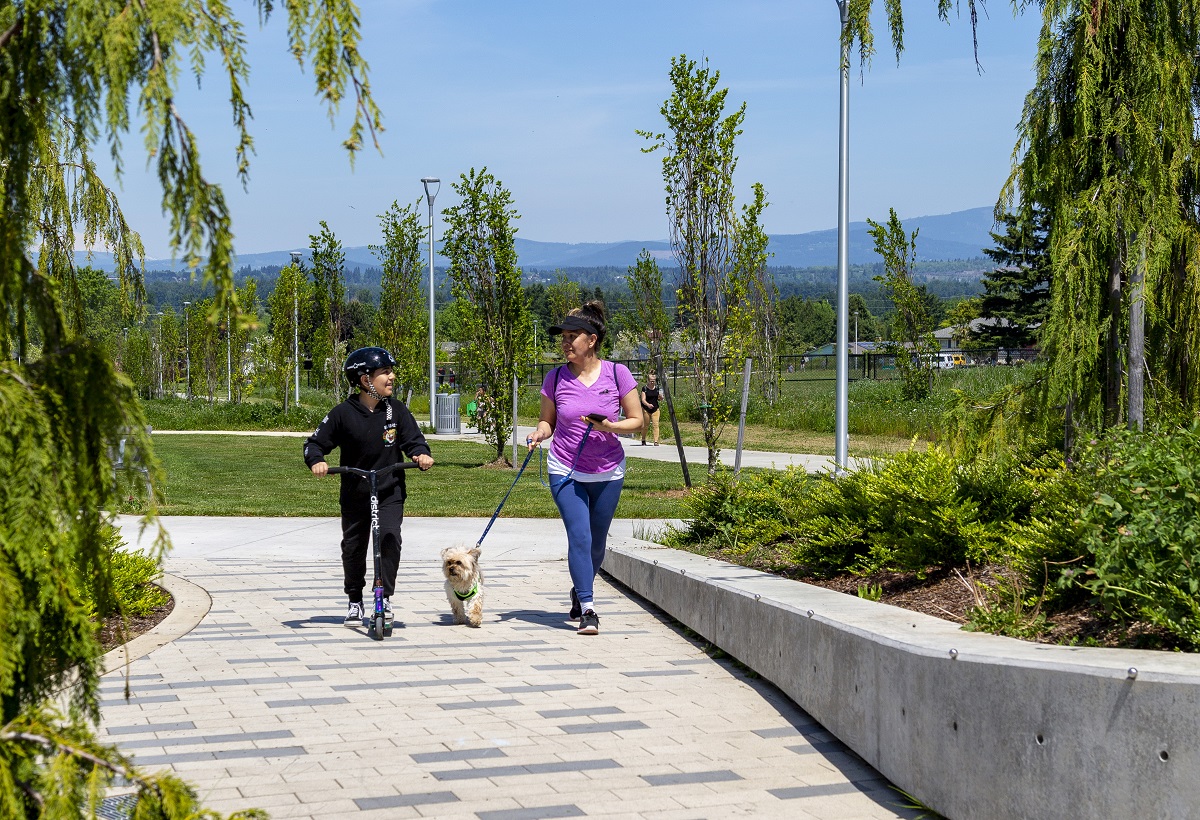Resource Library
A guide by St. Paul's Public Schools on ways to stay active during COVID while still remaining safe and healthy.

Suddenly find yourself working from home with some new smaller "coworkers"? We can help.
This is a crowdsourced photo library featuring walking and rolling to schools, parks, and around the community in all types of weather - rainy, gusty, snowy, and sunny!
An interactive document activity for children in school to educate and encourage physical activity during COVID-19.
This document provides some ideas for how to stay active while practicing safe social distancing, including ways to make your walk more fun, Earth Day themed activities, and safe walking and biking educational resources.
A helpful information pamphlet on how the Safe Moves Harness works and precautions to take while using it.
2-page document that outlines how to start a Walking School Bus Program and how it can help with busing shortages during COVID-19. This was developed for rural Humboldt County, CA.
A guide on how to continue keeping your kids active and safe by biking and walking during COVID.
A manual on how to remain safe while using the SPPS Bike Fleet. All information is in accordance with the Minnesota Department of Health and CDC Guidelines.
This webinar provides an introduction to starting and growing a strong Safe Routes to School program in Colorado. You will gain ideas for activities you can implement within your community right away, as well as for developing an overall framework for your program.
Portland Family Separated on the Way to School: Why School Zones Must Be Designated Safe Zones
Community advocates can help bring plans to life. While there are many ways that neighbors and residents can help to improve safe, equitable park access, this fact sheet provides four examples of how community advocates can participate in the implementation of Safe Routes to Parks efforts and highlights stories of advocates using these strategies.
This factsheet offers a snapshot of a tool to help park advocates engage stakeholders and gather data in support of safe, equitable park access: Health Impact Assessments.
Whether people are shopping at a supermarket or corner store, getting food from a food pantry, eating at a local restaurant, or picking up produce at a farmers market or community garden, everyone needs a safe and reliable way to get to the places where they obtain foods.
We are pleased to announce that Congressman Anthony Brown (D-MD) has joined with seven other House Democrats (Reps. Brownley-CA, Espaillat-NY, Lipinski-IL, Cohen-TN, Huffman-CA, Titus-NV, and Carson-IN) to introduce the Safe Routes to School Expansion Act, HR 5891.
The legislation proposes making several improvements to the Highway Safety Improvement Program (HSIP), which is funded at nearly $2.4 billion per year. The bill would:
Today, Democratic leadership in the US House of Representatives unveiled a $760 billion infrastructure package called “Moving America and the Environment Forward.” It is an outline of legislation the House plans to take up in the coming months, including surface transportation, broadband, drinking water, airports, and waterways.
This report provides an overview of the state of Safe Routes to School programming in the United States and a high-level assessment of challenges, innovations, and opportunities for Safe Routes to School programs.
 As we celebrate our holidays, the end of a decade and the prospects that lie ahead I am especially grateful for our community this year and the opportunity we had to gather in person at the Safe Routes to School National Conference in Tampa, FL.
As we celebrate our holidays, the end of a decade and the prospects that lie ahead I am especially grateful for our community this year and the opportunity we had to gather in person at the Safe Routes to School National Conference in Tampa, FL.


